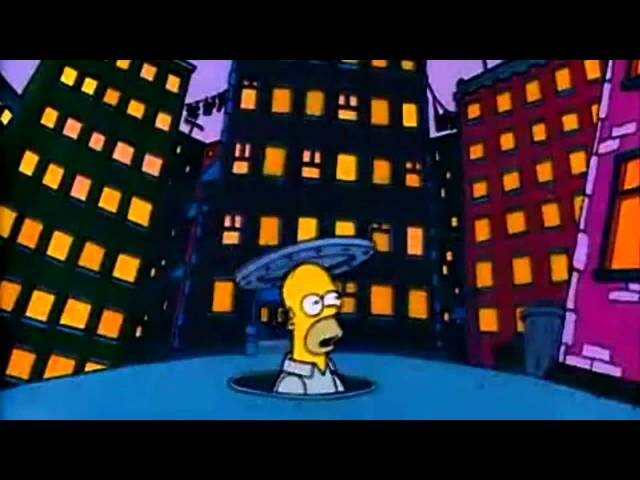If you can do the Bartman, you’re bad like Michael Jackson

In We’re No. 1, The A.V. Club examines an album that went to No. 1 on the Billboard charts to get to the heart of what it means to be popular in pop music, and how that concept has changed over the years. In this installment, we cover Bart Simpson’s “Do The Bartman,” which went to No. 1 on the U.K. singles chart on February 16, 1991, where it stayed for three weeks.
The Simpsons is popular in America—albeit maybe less now than it was—but in England? Forget about it. There, the show has been an absolute phenomenon for years, having been named the American show with the greatest cultural influence over the country as a whole in 2011. Grocery stores like Asda sell everything from Simpsons T-shirts to Simpsons cakes, and the show is generally credited as one of the key players in the expansion of the British broadcasting system, having originally only aired in the country on Sky One, a satellite-only channel.
That’s why The Simpsons Sing The Blues, the show’s first spin-off album, became such a smash in the U.K. Sure, the record did well in the U.S., moving about 3 million copies in the first three months of its release, but in the U.K., the album’s lead single, “Do The Bartman,” went straight to No. 1, where it sat for three weeks. And while the single’s U.K. sales totals—400,000 copies sold—seem a bit meager compared to that 3 million number, that’s a pretty big deal for England, especially for a novelty single. (Cher’s version of “The Shoop Shoop Song,” for instance, sold about 520,000 copies in the U.K. later that year, though it topped the charts for two weeks longer than “Do The Bartman.”)
Of course, part of the success of “Do The Bartman” could be because of its invisible guiding hand: Michael Jackson. An avowed fan of The Simpsons, Jackson and writing partner Bryan Loren teamed up to pen “Do The Bartman,” though Jackson’s role was relatively unknown until after his death, due to a deal he had with another record label. Loren received sole credit for the track’s funky swoops and stomps, though Jackson’s marks are clearly evident, especially knowing his involvement. (The track also features a couple of lines about or directed at Jackson, with Bart telling listeners, “If you can do the Bartman, you’re bad like Michael Jackson,” and extolling Jackson to “eat [his] heart out” at one point.)
“Do The Bartman” also apes another performer popular at the time: The Fresh Prince. Bart’s flow is more comical than lyrical, which is understandable considering that the track was voiced by Nancy Cartwright, an actress with undoubtedly scant hip-hop credibility. Lines like, “Yo / Hey, what’s happenin’ dude? / I’m a guy with a rep for being rude” would sound clunky if not delivered with such wacky aplomb, and a brief interlude about how Bart “got in trouble pretty deep” seems ripped straight from Will Smith’s “Parents Just Don’t Understand.” “Do The Bartman” is traditional pop rap. Like so many of Smith’s tracks, it’s about a kid who’s smarter than everyone but misunderstood, who’s always up to something, and who’s quick to point out that he “didn’t do it, nobody saw me do it, can’t prove anything.”
Given The Simpsons’ obvious and prevalent visual presence, it makes sense that part of the success of “Do The Bartman” would come from its music video, which aired on Fox December 6, 1990 immediately after the “Bart The Daredevil” episode. Directed by Simpsons staffer Brad Bird (who, like all other staffers, refused to make the video until absolutely forced to), the clip both highlights the song and tells a mini-Simpsons story. Detailing a Bart-centric daydream about a school performance that both turns funky and takes over Springfield, the “Do The Bartman” clip is a celebration of the whole Simpsons world—not just the immediate Simpsons family.
Even at the height of Simpsons mania, an album packed with tracks never featured on the show and ostensibly sung by the show’s main characters could have seemed like a stretch at best. And yet, anchored by the strength of tracks like the funky, effusive “Do The Bartman,” The Simpsons Sing The Blues works even now. Like Springfield and the Simpsons themselves, both the record and the single seem frozen in cartoonishly yellow amber, tied to a time and place that are both static and immediate.